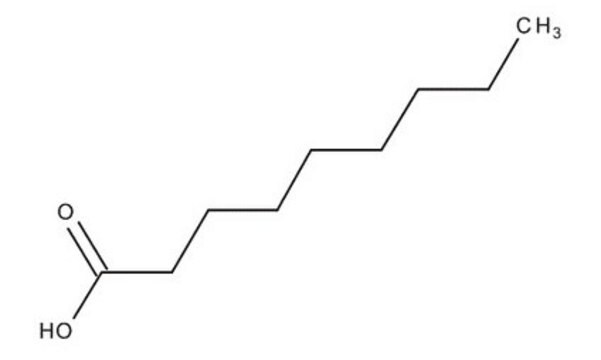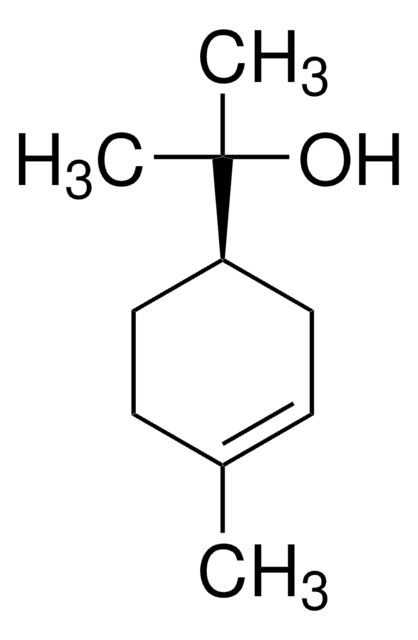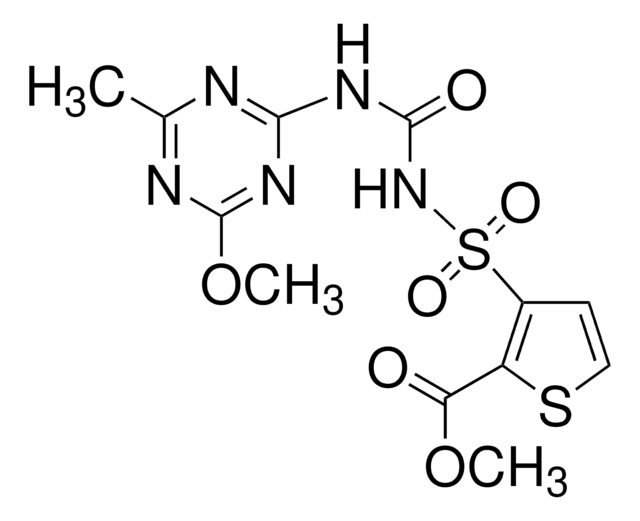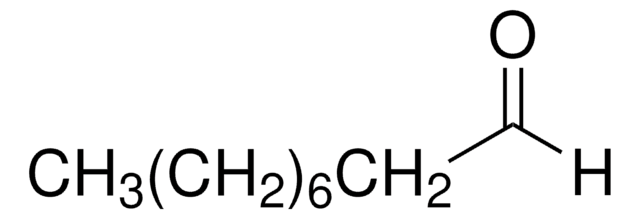73982
Nonanoic acid
analytical standard
Synonym(s):
Acid C9, Pelargonic acid
About This Item
Recommended Products
grade
analytical standard
Quality Level
vapor density
5.5 (vs air)
vapor pressure
<0.1 mmHg ( 20 °C)
Assay
≥99.5% (GC)
shelf life
limited shelf life, expiry date on the label
expl. lim.
9 %
technique(s)
HPLC: suitable
gas chromatography (GC): suitable
refractive index
n20/D 1.432 (lit.)
n20/D 1.432
bp
268-269 °C (lit.)
mp
9 °C (lit.)
density
0.906 g/mL at 25 °C (lit.)
application(s)
cleaning products
cosmetics
flavors and fragrances
food and beverages
personal care
format
neat
functional group
carboxylic acid
shipped in
ambient
storage temp.
room temp
SMILES string
CCCCCCCCC(O)=O
InChI
1S/C9H18O2/c1-2-3-4-5-6-7-8-9(10)11/h2-8H2,1H3,(H,10,11)
InChI key
FBUKVWPVBMHYJY-UHFFFAOYSA-N
Looking for similar products? Visit Product Comparison Guide
Application
Signal Word
Warning
Hazard Statements
Precautionary Statements
Hazard Classifications
Eye Irrit. 2 - Skin Irrit. 2
Storage Class Code
10 - Combustible liquids
WGK
WGK 1
Flash Point(F)
278.6 °F - Pensky-Martens closed cup
Flash Point(C)
137 °C - Pensky-Martens closed cup
Personal Protective Equipment
Choose from one of the most recent versions:
Already Own This Product?
Find documentation for the products that you have recently purchased in the Document Library.
Customers Also Viewed
Our team of scientists has experience in all areas of research including Life Science, Material Science, Chemical Synthesis, Chromatography, Analytical and many others.
Contact Technical Service














